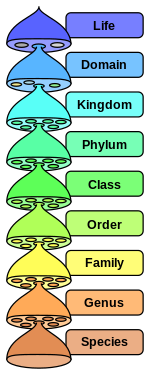group of plants within a species having distinct differences that occur naturally. usually within a specific geographic region.
In biological classification, subspecies (pl.: subspecies) is a rank below species, used for populations that live in different areas and vary in size, shape, or other physical characteristics (morphology), but that can successfully interbreed. Not all species have subspecies, but for those that do there must be at least two. Subspecies is abbreviated as subsp. or ssp. and the singular and plural forms are the same ("the subspecies is" or "the subspecies are").

In zoology, under the International Code of Zoological Nomenclature, the subspecies is the only taxonomic rank below that of species that can receive a name. In botany and mycology, under the International Code of Nomenclature for algae, fungi, and plants, other infraspecific ranks, such as variety, may be named. In bacteriology and virology, under standard bacterial nomenclature and virus nomenclature, there are recommendations but not strict requirements for recognizing other important infraspecific ranks.
A taxonomist decides whether to recognize a subspecies. A common criterion for recognizing two distinct populations as subspecies rather than full species is the ability of them to interbreed even if some male offspring may be sterile. In the wild, subspecies do not interbreed due to geographic isolation or sexual selection. The differences between subspecies are usually less distinct than the differences between species.



